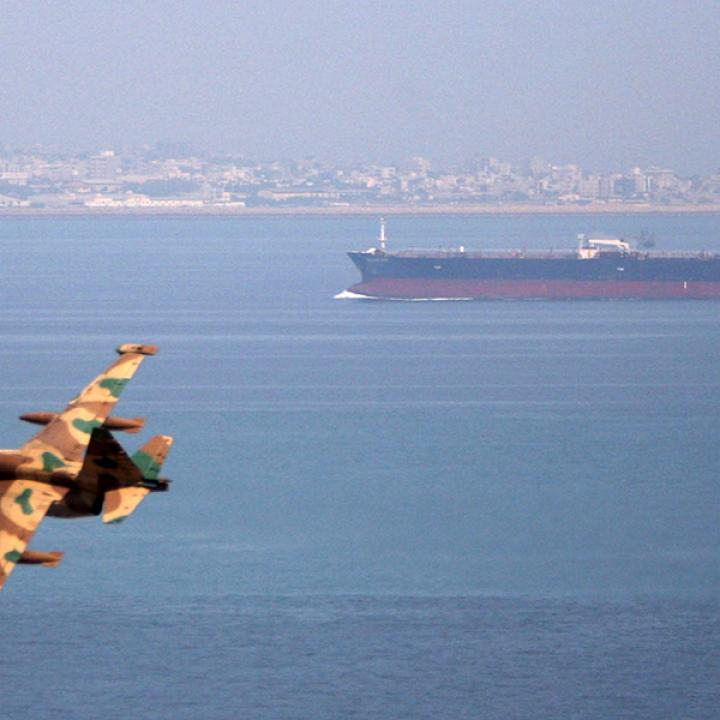

If the United States neglects the bigger regional picture and focuses solely on deal-making with Tehran, the result may be a tactical victory but a strategic defeat.
There exists an unmistakable view in the Middle East and beyond that the United States, exhausted from war and consumed by domestic political and economic troubles, is inexorably retreating from the region. American paralysis in Syria, confusion in Egypt, and stumbles elsewhere have fed allies' suspicions that the United States can no longer be relied upon.
The nuclear negotiations with Iran have exacerbated this unease, offering the spectacle of the United States not only sitting across the negotiating table from Iranian officials but offering concessions. Ironically, however, the United States has chosen diplomacy precisely because the alternatives -- military conflict or acquiescence to a nuclear-armed Iran -- would be destabilizing to its allies' neighborhood.
But handled poorly, the negotiations could also prove destabilizing. The objective, after all, of the talks is not merely to reach an agreement, but to advance the interests of the United States and its allies, especially in regional stability and nonproliferation. If, however, America's allies (or Iran, for that matter) perceive that a deal is the prelude to an American withdrawal, or if Iran is left with too great a nuclear capacity, the result may be greater conflict, particularly along sectarian lines, and a regional race to match Iran's capabilities.
The clearest way to avoid this is to insist on a tough deal with Iran and to be willing to walk away from the table altogether if necessary. However, any negotiation requires giving as well as taking, and even a tough agreement may discomfit America's allies. To mitigate this, Barack Obama's administration should complement the two tracks of its Iran policy -- diplomacy and pressure -- with a third: a "regional" track aimed at assuring allies and warning Iran that the United States remains committed to the Middle East and determined to address any destabilizing Iranian activities in the region and other threats to U.S. interests comprehensively.
As part of this regional policy pillar, the United States should intensify its consultation with allies in the region, including Gulf Cooperation Council states, Jordan, Israel, and others, on Iran and regional issues. This should involve not simply back-briefing partners after each round of talks, but huddling with them beforehand to ensure that their concerns are addressed and their interests represented.
The Obama administration's efforts to date have proved heavy on process but light on results outside the military sphere. Indeed, on critical regional issues, the United States and its allies have often worked at cross-purposes. Remedying this will require a steady effort to rebuild trust and communication and to find common policy ground on which the United States and its allies can cooperate.
Obama's trip to Riyadh this month is a welcome step in this regard but cannot be a one-off, nor should it necessarily be the president's only stop in the Persian Gulf. Visits will need to be preceded and followed by ongoing dialogue aimed at ensuring that U.S. and allied approaches to key regional issues are complementary. The reported recent gathering in Washington of regional intelligence chiefs to discuss Syria is precisely the sort of coordination that is needed.
It might be tempting to dismiss allies' concerns regarding Iran's regional activities and other issues as mere hand-wringing or even to hope that with energy independence drawing slowly nearer the United States will no longer need to heed them. This would be misguided -- allies in the region can bring capabilities, insights, and funding to the table in ways that can reinforce America's own efforts. Allowing these alliances to wither may mean less effort in the short run, but would prove costly in the long run.
Consultation, however, will not be sufficient to demonstrate that U.S. commitment to the region and to addressing threats to shared interests will not end when a nuclear deal is signed. It will also require more determined action to advance the interests that the United States and its partners there share. This should take the form not only of an enduring military presence -- something that the upcoming Quadrennial Defense Review will provide an opportunity to reinforce -- but also more decisive steps to address the conflicts and problems roiling the region.
The theater in which a more proactive policy is most urgently required -- and would go the furthest to reassure allies and deter Iran -- is Syria. In assessing the new options he has ordered be drawn up for U.S. policy there, Obama should consider the impact that his decision will have on broader U.S. interests in the region.
Too often policymakers resort to straw-man arguments to justify inaction, most egregiously positing "boots on the ground" as the alternative to the United States' current ineffective policy on Syria. The United States need not act alone and certainly should not reflexively resort to military action. But the hard experiences of a decade of war and three years of turmoil in the Arab world should counsel smart, economical, and effective multilateral action, not serve as excuses for inaction.
Any nuclear agreement with Iran will be hard to achieve and will involve difficult choices. But taking steps to reinforce the U.S. commitment to the Middle East and address Iran's destabilizing regional activities will make an agreement both easier to reach -- by serving notice to Iran that the United States is negotiating from a position of strength and confidence and is prepared to act to defend its interests -- and easier to sell to allies, by reassuring them that the United States does not intend to cut and run. If on the other hand the United States neglects the bigger regional picture and focuses solely on deal-making with Tehran, the result may be a tactical victory, but a strategic defeat.
Michael Singh is managing director of The Washington Institute.
Foreign Policy


